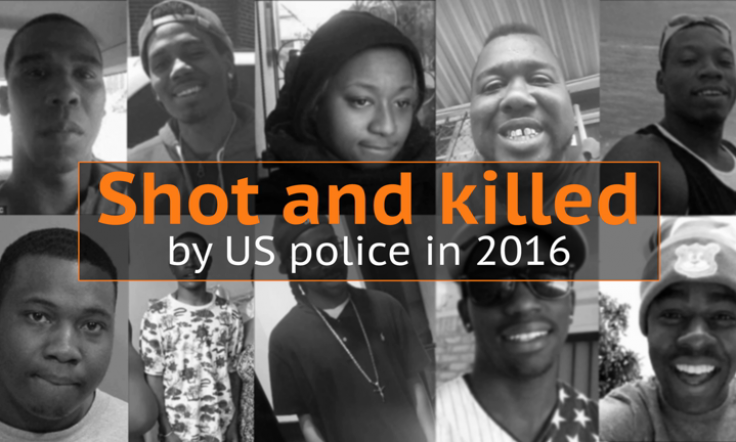On 14 December 2012 (my father’s birthday) I posted an angry tweet about pastors who didn’t know what to say in the aftermath of the Sandy Hook shooting sit down rather than preach something stupid like God needed more angels. Someone asked me what to preach instead, a serious question as they were struggling with the horror and the assigned texts in the preaching lectionary used by many Christian denominations. I held my first-ever tweetchat using the hashtag #what2preach.
I have brought that hashtag back after shooting after shooting and atrocity after atrocity. I realized today that it has become a macabre protocol for me as a priest, seminary professor and biblical scholar to help other priests and pastors who are struggling to proclaim a meaningful word in God’s name.
And Goddammit– yes, may God damn and curse the murderous violence in our society to the pits of hell – God damn it we are here again.
#what2preach…
Preach the truth: There are hard, ugly truths to confront in our preaching: an enduring history of American violence and its legacy, the history of race, racism and racialized violence in America, access to guns and military weapons in particular. This will be hard to do if you have never addressed these truths before.
Preach the context: Cooption of one #BlackLivesMatter protest among many simultaneous BLM protests around the country because of two more killings of black men by police on video that depicts the killings as little more than assassinations. If you have never preached about BLM before you will need to introduce it to your congregation in its own words, not the words or opinions of others. You will need to do some homework and I won’t do that for you.
Preach to your context: Sermons in white, multiracial, lightly integrated and black congregations will be and should be different because we do not have the same experiences of being American and encountering police. Some will have the luxury generated by white privilege to construct a service of lament for the murdered officers without any regard to the larger context. That may be what your congregation wants and expects. Preaching to your context doesn’t mean doing what they want; what they want is not always what they need.
Avoid religious tropes: Folk waiting for Jesus to make this right are dying and being killed. God’s love extends to all but so what. We may believe that God will exact perfect justice in the world to come but we live in this one. Prayer is powerful but it is too often used as an excuse to avoid doing the difficult work of holding our society accountable for its ills and working to dismantle and rebuild it. Jesus’ execution and triumph over death are the powerful heart of the Christian faith and need to be more than a sermonic flourish or rhetorical performance to be relevant.
Exorcise the demonic: Name the evils in our midst – white supremacy, systemic racism, interpersonal racism, callous disregard for human life, corrupt authorities and legal systems, murder, hate.
Heal the hurt: Begin the process – you are not responsible for all of it or even finishing it. The healing process begins with creating the space for healing and naming the hurts. Acknowledge the deep pain and fear. Address the grief and anger of the police officers and their families in Dallas any the larger police community. Address the fear, anger and rage of the black community in the face of continuing recorded police killings for where there are few indictments and even fewer convictions. Give voice to the pain. Lament and let the lament be unresolved. This lament will endure.
Wrestle with the text: If a text doesn’t fit, don’t use it. Don’t contort the text. Change texts if need be. Don’t be so enslaved to a preaching cycle that you abdicate your responsibility to proclaim a living word. Don’t choose a fallback text that is irrelevant because you’ve worked out some sermonic theatre.
Theologize well: Where is God in all of this? In the killings of black folk? In the lack of justice for their deaths? In the rage of the black community? In the decision to spawn murder from that rage? In the killing and wounding of police officers and civilians? In the response of congregations and civil society to all of these acts of violence and the society that produces them? What enduring truths will give meaningful comfort without scapegoating or being cliché?
Offer hope: Stand on the promises and convictions of your faith in spite of all of the evidence to the contrary. If you have preached well – or at least honestly and thoughtfully – this will not be heard as meaningful platitudes.
Call to action: What will you and your congregation do to help heal the world that is meaningful and concrete inside and outside of your walls? This will vary depending on the ethnicity of your congregation.
In all of these approaches, it’s all right to say you don’t know. It’s all right to be silent, even and especially when it becomes uncomfortable.
Originally written for RevGalBlogPals https://revgalblogpals.org/2016/07/08/11th-hour-preacher-party-what2preach-when-blood-is-running-in-the-streets/


aspaceforhope
July 14, 2016 9:19 pmThank you for this post. I am not ordained. I am a Christian in the Episcopal Church and former seminary professor. As a faculty member I preached once a quarter. Even though I believe I have a preaching voice for social justice, I don’t have the opportunity to preach since I am no longer a seminary professor and there is no opportunity to preach at my church. I learned a lot from your post about how to preach. Your post should be widely disseminated. I hope you will consider submitting it to episcopalcafe.com and Episcopal News Service. I will see if I can post it on my diocesan web site Thank you for your ministry.